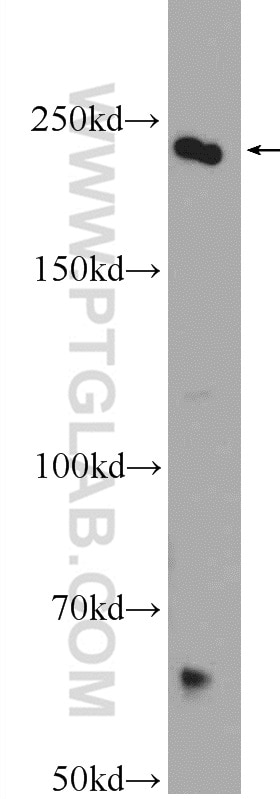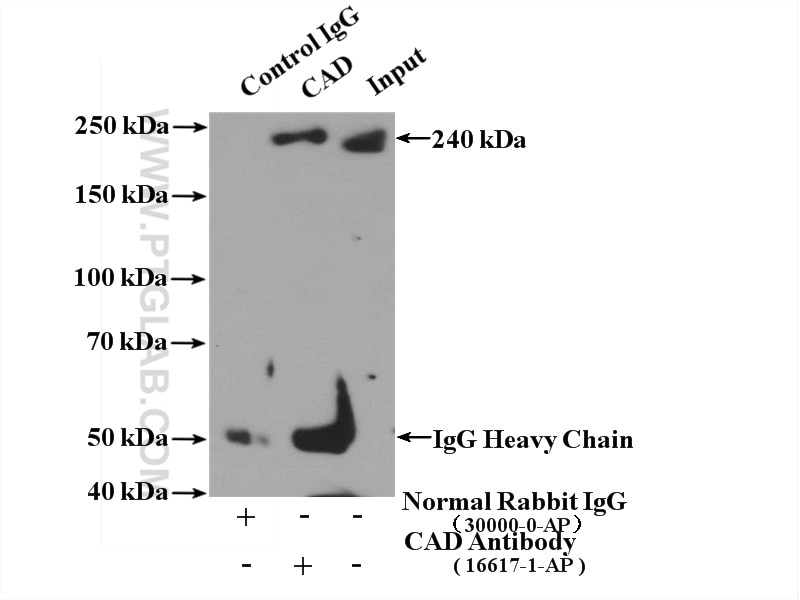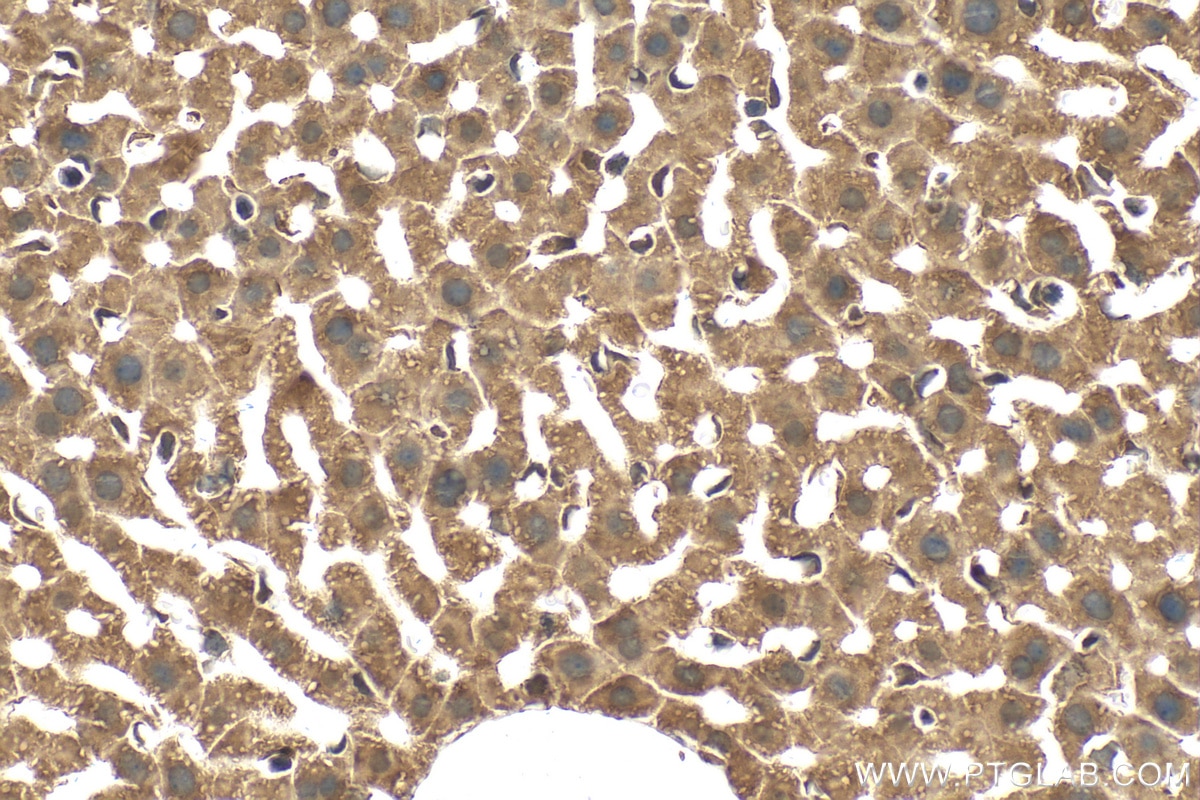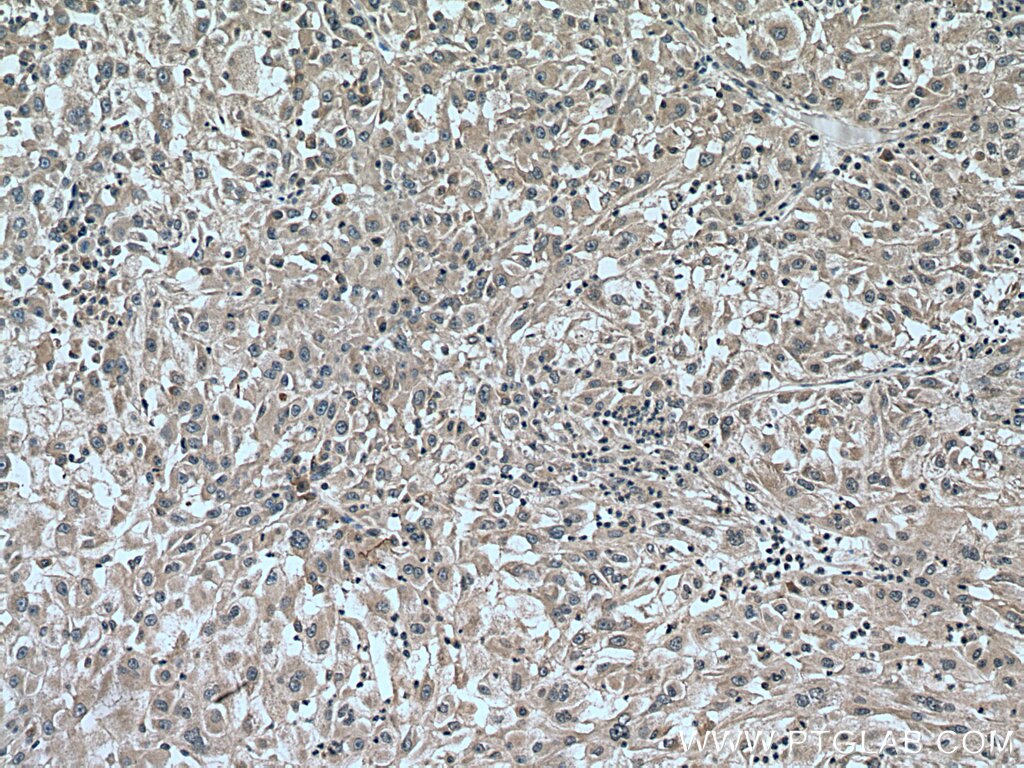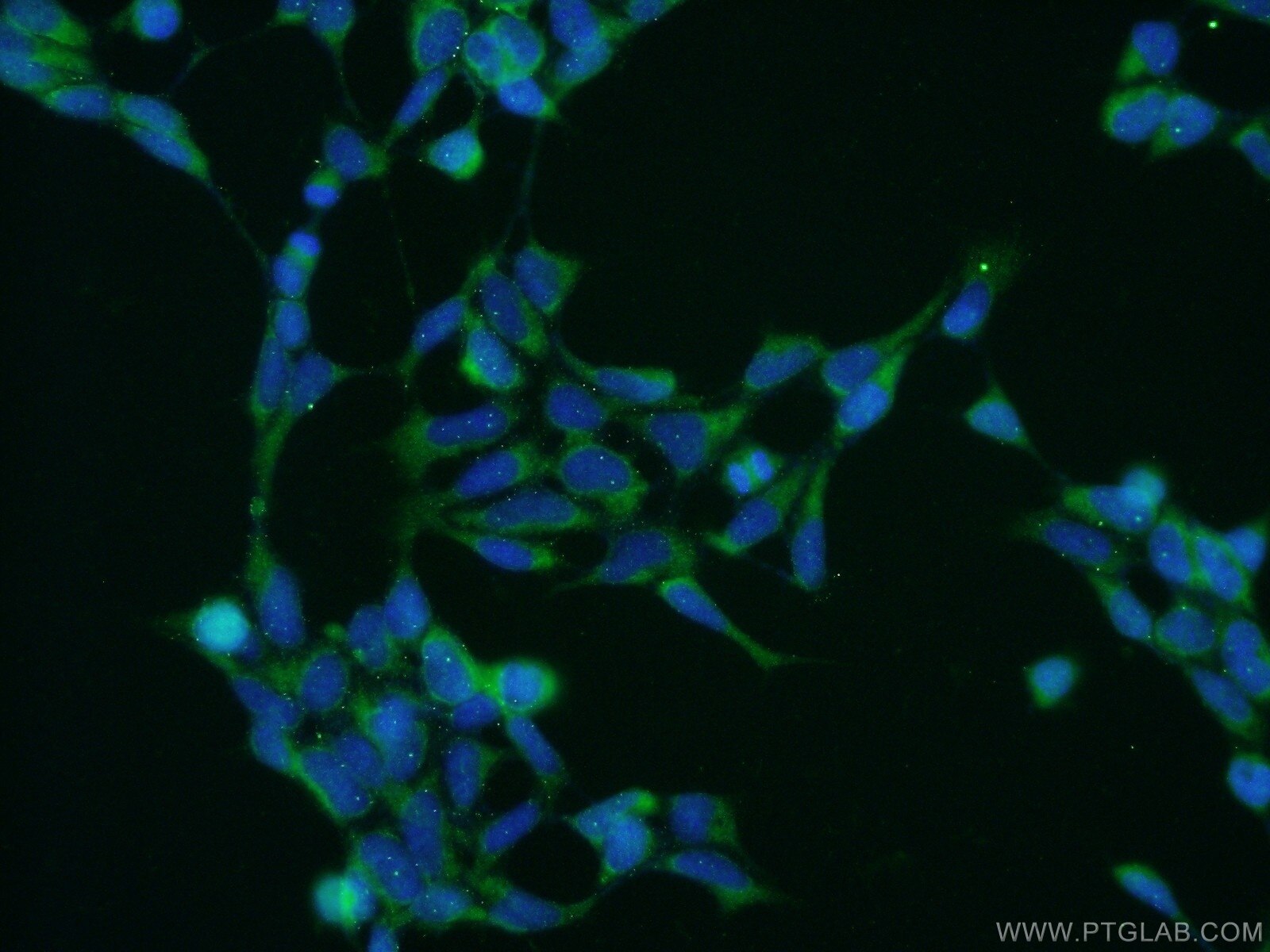Validation Data Gallery
Tested Applications
| Positive WB detected in | HEK-293 cells |
| Positive IP detected in | HEK-293 cells |
| Positive IHC detected in | human liver cancer tissue, mouse liver tissue Note: suggested antigen retrieval with TE buffer pH 9.0; (*) Alternatively, antigen retrieval may be performed with citrate buffer pH 6.0 |
| Positive IF/ICC detected in | HEK-293 cells |
Recommended dilution
| Application | Dilution |
|---|---|
| Western Blot (WB) | WB : 1:500-1:1000 |
| Immunoprecipitation (IP) | IP : 0.5-4.0 ug for 1.0-3.0 mg of total protein lysate |
| Immunohistochemistry (IHC) | IHC : 1:50-1:500 |
| Immunofluorescence (IF)/ICC | IF/ICC : 1:20-1:200 |
| It is recommended that this reagent should be titrated in each testing system to obtain optimal results. | |
| Sample-dependent, Check data in validation data gallery. | |
Published Applications
| KD/KO | See 2 publications below |
| WB | See 11 publications below |
| IHC | See 4 publications below |
| IF | See 2 publications below |
| IP | See 1 publications below |
Product Information
16617-1-AP targets CAD in WB, IHC, IF/ICC, IP, ELISA applications and shows reactivity with human samples.
| Tested Reactivity | human |
| Cited Reactivity | human, mouse, pig |
| Host / Isotype | Rabbit / IgG |
| Class | Polyclonal |
| Type | Antibody |
| Immunogen |
CatNo: Ag9912 Product name: Recombinant human CAD protein Source: e coli.-derived, T-HIS Tag: 6*His Domain: 502-851 aa of BC014178 Sequence: VAEPELMGTPDGTCYPPPPVPRQASPQNLGTPGLLHPQTSPLLHSLVGQHILSVQQFTKDQMSHLFNVAHTLRMMVQKERSLDILKGKVMASMFYEVSTRTSSSFAAAMARLGGAVLSFSEATSSVQKGESLADSVQTMSCYADVVVLRHPQPGAVELAAKHCRRPVINAGDGVGEHPTQALLDIFTIREELGTVNGMTITMVGDLKHGRTVHSLACLLTQYRVSLRYVAPPSLRMPPTVRAFVASRGTKQEEFESIEEALPDTDVLYMTRIQKERFGSTQEYEACFGQFILTPHIMTRAKKKMVVMHPMPRVNEISVEVDSDPRAAYFRQAENGMYIRMALLATVLGRF 相同性解析による交差性が予測される生物種 |
| Full Name | carbamoyl-phosphate synthetase 2, aspartate transcarbamylase, and dihydroorotase |
| Calculated molecular weight | 2225 aa, 243 kDa |
| Observed molecular weight | 240 kDa |
| GenBank accession number | BC014178 |
| Gene Symbol | CAD |
| Gene ID (NCBI) | 790 |
| RRID | AB_2878289 |
| Conjugate | Unconjugated |
| Form | |
| Form | Liquid |
| Purification Method | Antigen affinity purification |
| UNIPROT ID | P27708 |
| Storage Buffer | PBS with 0.02% sodium azide and 50% glycerol{{ptg:BufferTemp}}7.3 |
| Storage Conditions | Store at -20°C. Stable for one year after shipment. Aliquoting is unnecessary for -20oC storage. |
Background Information
CAD (carbamoyl-phosphate synthetase 2, aspartate transcarbamoylase, and dihydroorotase) is a multifunctional enzyme required for the de novo synthesis of pyrimidine nucleotides (PMID:25422319). CAD initiates and controls the flflux through the pathway and is regulated by allosteric effectors and phosphorylations through different signaling cascades (PMID:12438317). Moreover, CAD is found upregulated in tumors, while mutations that compromise its function are the cause of a severe infantile epileptic disease (PMID:36677714).
Protocols
| Product Specific Protocols | |
|---|---|
| IF protocol for CAD antibody 16617-1-AP | Download protocol |
| IHC protocol for CAD antibody 16617-1-AP | Download protocol |
| IP protocol for CAD antibody 16617-1-AP | Download protocol |
| WB protocol for CAD antibody 16617-1-AP | Download protocol |
| Standard Protocols | |
|---|---|
| Click here to view our Standard Protocols |
Publications
| Species | Application | Title |
|---|---|---|
Cell Metab High dietary fructose promotes hepatocellular carcinoma progression by enhancing O-GlcNAcylation via microbiota-derived acetate | ||
Theranostics Herb-sourced emodin inhibits angiogenesis of breast cancer by targeting VEGFA transcription. | ||
PLoS Biol Nucleotide de novo synthesis increases breast cancer stemness and metastasis via cGMP-PKG-MAPK signaling pathway. | ||
Front Cell Dev Biol Identification of Key Genes Related With Aspartic Acid Metabolism and Corresponding Protein Expression in Human Colon Cancer With Postoperative Prognosis and the Underlying Molecular Pathways Prediction. | ||
Front Nutr Valine metabolite, 3-hydroxyisobutyrate, promotes lipid metabolism and cell proliferation in porcine mammary gland epithelial cells |

